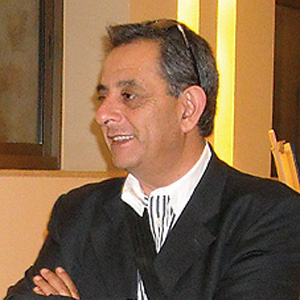After quite a long time since my last vacation, I decided to take a break of one week in October. Along with my wife, my two daughters, and one of the girls’ friends, we flew to Rome, one of our favorite cities. The trip was simply lovely, and I came back refreshed and ready to face the world again. My feistiness didn’t last very long, though, since only eight hours after getting back, I had to face Qalandia Checkpoint. But here I am, doing what I love to do: writing my monthly column and getting ready to send the November issue of This Week in Palestine to the printer.
Can’t say much has changed in Rome since 2005 when I last visited, but I noticed that a few things were different. I must have seen a person or two pay in cash, but just about everyone else paid by credit card, even for a trivial amount. What highlighted this was my ending up with a 100-Euro note that was slightly torn at the top. A note in much worse condition would pass in Palestine, but no one in Rome was ready to take my barely ripped 100 Euros. I went to two banks, and the tellers in both of them told me (in very broken English that I may have misunderstood) that they do not deal with cash! When I paid cash for our shopping purchases (certainly not along Via Condotti by the Spanish Steps!), the shopkeepers carefully checked every bill.
Last week I had to visit the Jerusalem Municipality in West Jerusalem. I drove into the municipality’s basement parking lot, took a voucher, parked, and went up to do my business. When I was done, I put the voucher into the machine to pay, only to realize that the machine only takes credit cards. I paid by credit card and left. At the municipality, whether it’s to secure a place in line or make a payment, everything seems to need your ID number or your credit card number. If you have a complaint, no employee will see you personally; you have to fill out an online form on designated screens that have scanning services for documents. At some point, I needed to pay an amount of over NIS 10,000 at the municipality post office. The clerk told me that they don’t take cash! At least such amounts. The post office eventually did take my cash but only after I talked to the manager.
What’s the world coming to? It seems that if you’re not connected to the “system,” you’re not able to be part of this modern society. You simply have to have a bank account and a credit card, not to mention that your ID has to be cleared by various governmental institutions to even start functioning. But who is caring for the simple, uneducated, or even elderly people as this technology revolution is taking our societies by storm? How should they manage? This cut-throat system is certainly a Western phenomenon that is sweeping the entire globe. I suppose that this is globalization in action. There must be an alternative system that is more humane and compassionate.


